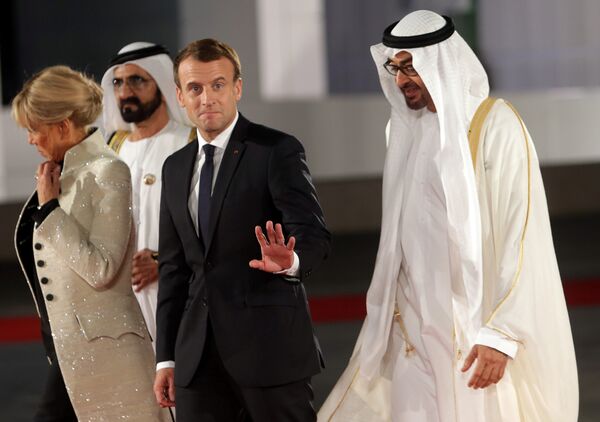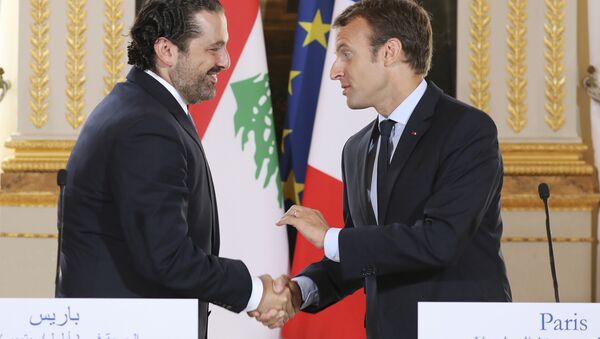French Foreign Minister Jean Yves Le Drian declared on November 16 that Lebanese Prime Minister Saad Hariri has accepted an invitation from French President Emmanuel Macron to come to France during a meeting in Saudi Arabia.
"He will come to France when he wants and as soon as he wants. He will be welcome as a friend," Mr. Le Drian told a press conference in the Saudi capital Riyadh. In response to questions about when he was likely to depart Saudi Arabia, where he is a dual-citizen Mr. Hariri replied he, "would rather not say now."
At the same time, Saudi Arabia's Foreign Minister Adel al-Jubeir declared Mr. Hariri is "free to leave," when he chooses to. It remains unclear as to whether the Prime Minister will return to Lebanon from France, or if his stay there will become a more permanent exile.
"Hariri's future is very much at stake. There will be a question of whether he continues as Prime Minister and who will succeed him, he will have to come to Lebanon to tender his resignation officially," Associate Fellow at Chatham House Nadim Shehadi told Sputnik.
According to Mr. Shehadi, Macron has been a good candidate for a mediator in this case.
"President Macron has influence in Lebanon because he is sounding less partisan when it comes to the divisions inside Lebanon and of course he has good relations with all the other players."
I

In his televised resignation speech, Saad Hariri cited fear of assassination as a reason for his stepping down as well as the alleged influence of Iran on the Lebanese Party Hezbollah, his partner in government.
Mr. Shehadi told Sputnik that Mr. Hariri's position within his own Party was untenable while heading a government in cooperation with Hezbollah.
"His resignation is a good political move from his perspective because he has been compromising for the last two years, he was seeming too weak and losing support amongst his own followers," Mr. Shehadi said.

Mr. Hariri unexpectedly resigned on November 4 in Riyadh, saying he feared for his life in Lebanon. The speech prompted widespread suspicions in Lebanon that he was compelled to resign by the Saudi Government which is vying with its regional rival Iran for influence across the Middle East. The Saudi authorities have denied they have detained Mr. Hariri or held him against his will.
تشرفت اليوم بزيارة خادم الحرمين الشريفين الملك سلمان بن عبدالعزيز في مكتبه بقصر اليمامة pic.twitter.com/4gLKpUTd11
— Saad Hariri (@saadhariri) November 6, 2017
Lebanese President Michel Aoun refused to accept the resignation until the Prime Minister returns to Lebanon and on November 15 suggested Mr. Hariri is under house-arrest in Saudi Arabia.
Hariri's father, former Prime Minister Rafiq Hariri was assassinated in a car-bombing in Beirut in 2005, prompting protests known as the 'Cedar Revolution' which saw Syrian troops expelled from the country. Mr. Hariri and his political party 'Future' have long accused Hezbollah, Syria and Iran of involvement in the killing but the assassins have never been identified or brought to trial.
"The likely next step depends on a lot of regional factors including the broader confrontation between Saudi Arabia and Iran," Mr. Shehadi told Sputnik.


